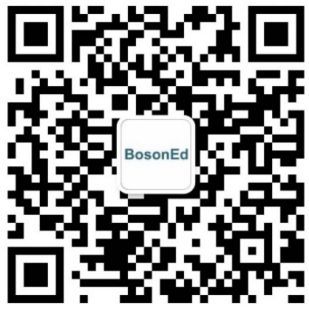How to choose a major from a career-building perspective
The first core of job hunting lies in being the subgroup one. This means becoming a unique individual in a specific niche area, making it difficult for others to replace you. Just like in the application process, where we discuss the concept of "application theme," essentially defining your “selling points”, job hunting requires identifying your unique selling points and increasing your irreplaceability. Some of you may say that we all study CS or business, can one differentiate themselves? I'll explore this through case studies shortly.
Second core principle is early planning and gathering information. It's not something you start preparing for right before graduation. Instead, it begins during the application process for college. And continually reassess your goals and challenge previous assumptions to progress throughout your college years. Additionally, don't just follow the crowd. You need to personally gather information and verify what you hear.
Based on the two core principles, I'll provide two strategies:
Strategy 1: Explore niche STEM majors
STEM majors like computer science or financial engineering are getting increasingly competitive. But, from a career perspective, other majors can also do the job that CS and DS do. Here are some lesser-known STEM majors that are less intense to apply:
● Engineering: Operational Research and Supply Chain Management. These majors aren't as demanding as computer science or financial engineering, and the employment prospects are excellent.
● Natural sciences: Nutrition. Some schools offer nutrition as a branch of agricultural science, while others have it as a standalone program. With the increasing focus on nutrition and food safety today, nutrition is a highly employable major. Pharmacy/Pharmaceutical Science are also good options. It's an applied branch of biology with broad employment opportunities.
● Even in the humanities, there are STEM options. For example, under media studies, there's digital communication and media/multimedia. Under education, educational statistics and educational research are considered STEM, such as Educational Evaluation and Research.
Strategy 2: Become a versatile talent
To explain this point, let's look at a few examples from our students.
Example 1: A student majoring in Media/PR at NYU, with a passion for photography. She took elective courses in TV production at NYU and produced short films independently. Eventually, she was hired by a PR company.
Analysis:
PR and media are often considered one of the most challenging majors to find jobs. However, this student's proficiency in producing short films provided her with an additional advantage and opened doors for her in the industry.
Example 2: A student majoring in Public Policy at a top 30 university, who took an exchange program at the Paris Institute of Political Studies (Sciences Po) and was involved in a research project on the European Union. She’s also fluent in French. The student was ultimately hired by an NGO.
Analysis:
Social sciences are among the most challenging majors for students to find employment. Due to the small job market and limited number of positions. Students who succeed in these areas are often outstanding in a specific niche. They successfully leverage their unique strengths, making themselves stand out in a highly competitive job market, and ultimately secure their dream jobs.
Example 3: A student with a background in linguistics (humanities) who minored in programming, and was hired by a startup company specializing in speech recognition for human-computer interaction after graduation.
Analysis:
This student sought guidance from BosonEd during the application process. I suggested that since her major in linguistics was more humanities focused, it would be a good idea to minor in computer programming because the employment prospects for pure theoretical linguistics were bleak. Human-computer interaction, particularly in the field of speech recognition, is a booming topic. A background in linguistics would undoubtedly contribute to success in this area
In summary, these successful job-seeking students are essentially versatile talents, possessing a diverse skill set. The requirements for a position are less about specific majors and more about a combination of skills. When you look at job postings, they typically list a variety of skill requirements, such as proficiency in certain software, operational skills, teamwork, and communication abilities. One of the advantages of American higher education is their emphasis on cultivating diverse skill sets. With flexible course selection and the ability to explore various disciplines, students have ample opportunities to develop their skill combinations.
The second key to finding a job is gaining internship experience. As seen in these examples, almost all of them had internship experience. It's essential to fully utilize the career centers at your university, and if your school offers a co-op program, it's highly recommended to participate.
Final advice:
• Networking Ability: Establishing connections is crucial, which are often characterized by their social networks. Especially when you're away from your parents, friends from your home country/hometown. It's essential to quickly build a new support network. With this network, you'll find many things become much easier.
• Curiosity + Proactivity: Don’t wait for professors, staff, or classmates to come to you. There are plenty of resources available in college, but you need to be proactive in seeking them out. The driving force behind this should be maintaining curiosity. Some activities may seem boring, and you might debate whether to participate in certain clubs or classes, but it's often these opportunities that allow you to seize the chance. Participating in a club, for example, might introduce you to someone who could offer you a job in the future. Curiosity is the best motivation to take initiative.
• Confidence, Resilience, and Boldness: Whether in academics or job hunting, you're bound to face setbacks. Even the most successful individuals have experiences of sending out hundreds of resumes without receiving a single interview invitation. Never lose heart. Sometimes, you need to be bold. Apart from waiting passively for interview invitations, you can also directly email or call to inquire. Employers appreciate employees who take initiative.

















